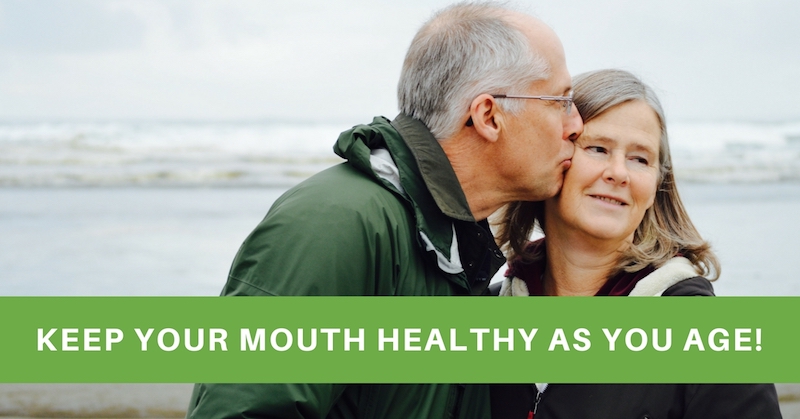
65 is the new 40!
But tell that to your teeth and gums. As you age, you’ll need to pay extra care and attention to maintain great dental health.
In today’s blog post, we’re covering some of the most common dental issues seniors need to be aware of. We’ll also give you 6 important tips for caring for your teeth as you age.
Keep your teeth healthy for a lifetime!
Take a well-rounded approach to your dental care
Common senior dental problems
What you don’t know can still hurt you, especially when it comes to your dental health. The following dental issues can occur at any age, but are especially prevalent in seniors. If you notice any of these issues, seek immediate dental attention.
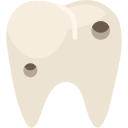
Diseases
As you age, your immune system weakens. You’ll need to be extra aware of various dental diseases, such as gum disease, oral cancer, and thrush. Preventive care measures and screenings are important.

Tooth decay
Your teeth have been with you for a long time! As a result, they might experience some wear, breakdown, and decay. Your dentist can help you identify how best to repair and strengthen these teeth.
Tooth loss
If you haven’t practiced good dental habits throughout your life, or are faced with gum disease, you may experience tooth loss. Fortunately, getting older doesn’t mean you have to lose your teeth! Your dentist can help!

Root decay
Receding gums are common as you age and exposure can cause root decay. Regular dental visits will ensure you catch any receding gum issues.
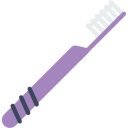
Bad breath
If you’re suffering from gum disease, dry mouth, or dirty dentures, you may also be faced with bad breath (halitosis). Your dentist can help you manage this issue.
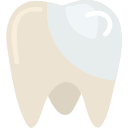
Darkened teeth
The dentin in your tooth changes as you age, which in turn changes the color of your teeth. Talk to your dentist about how this can be corrected.
6 tips to keep your mouth healthy as you age

Your dental health affects more than just your teeth and gums; poor oral health can have serious implications on your overall health and wellbeing. For instance, modern research suggests that gum disease can contribute to other health issues, including:
- Heart disease
- Lung disorders
- Arthritis
- Strokes
- Diabetes
- Coronary artery disease
Taking careful care of your teeth, especially as you age and your immune system weakens, is incredibly important. Below are 6 specific tips on how you can maintain a healthy mouth (and body) as you head into your golden years.
1. Don’t stop brushing and flossing!
If you’ve been properly caring for your teeth your whole life, you already know the most important basics: brush and floss twice a day! Although these two basics remain important as you age, you may need to make some adjustments.
Consider that your teeth and gums have gone through quite a bit of normal wear and tear and need a gentler approach. Additionally, after the age of 50, plaque is much more difficult to get rid of and builds up more quickly
You simply can’t expect to take the exact same approach as you always have. Here’s what we recommend for most older adults:
- Use an electric toothbrush – If you’re not already enjoying the benefits of an electric toothbrush, start today. An electric toothbrush will do a better job of cleaning all those difficult-to-reach places and has a built-in timer to ensure you brush for the correct amount of time. Plus, an electric toothbrush is easier to hold which is especially helpful if you’re facing arthritis or joint pain.
- Soft bristle brush only! – Whether you use a traditional toothbrush or an electric brush, always make sure you’re using a soft-bristle-brush. Avoid a heavy-handed approach. Instead use slow and gentle movements.
- Floss after every meal – Since plaque tends to build up more quickly on older teeth, consistent flossing is crucial. We recommend flossing after every meal.
- A hand-held flosser may be easier – If managing floss and maneuvering it around every tooth is getting difficult, try switching to a hand-held flosser instead. This will also ensure you can take a gentle approach to flossing and avoid damaging your gums.
2. Use mouthwash carefully
If you’re accustomed to rinsing with mouthwash multiple times a day, you may need to adjust your approach. Yes, mouthwash is a great way to prevent cavities and plaque buildup, however it can also upset the pH balance in your mouth and contribute to dry mouth.
Since older adults tend to frequently experience dry mouth issues, you should be careful about overusing mouthwash. Rinsing once before bed is sufficient. And you may benefit from using an alcohol-free option.
3. Consider implants vs. dentures

If you’ve experienced tooth loss and are considering a solution, don’t automatically assume dentures are the best option. Often, dental implants are far superior to removable dentures.
Safe, permanent, and natural-looking implants can restore the look of your original teeth. More importantly, implants provide better chewing ability and prevent jaw joint problems by stabilizing your jaw bone. Talk to your dentist about what’s best for your particular situation.
If you do have dentures, it’s very important to care for them properly. Dentures need to be cleaned everyday with a product designed specifically for dentures. You also need to give your mouth frequent breaks from dentures. Always keep your dentures out of your mouth for at least 4 hours a day (while you sleep is the best time!).
4. Watch for dental side effects of medication
Are you on any medications? They could be causing issues for your dental health – particularly dry mouth. Dry mouth is more than just an annoyance, it’s also dangerous for your general dental health as it allows plaque to adhere more easily and accelerates tooth decay and gum disease.
If you’re starting a new medication, keep tabs on any resulting changes to your mouth, teeth, or gums. Always contact your dentist right away if you notice any issues as a result of your medications.
5. Your dentist can help you manage diabetes

Older age is a significant risk factor for diabetes, and those suffering from this disease need to be extra aware of their gum health.
People with diabetes are more prone to gum disease, affecting 22% of those diagnosed. Furthermore, research suggests that by treating gum disease, you can help improve your blood sugar levels and decrease the progression of your diabetes.
Developing a close relationship with your dentist by making regular dental appointments is important for keeping your smile healthy and managing diabetes.
6. Drink lots of water (avoid soda)
When you reach for something to drink, do your best to avoid soda. Traditional soda drinks and citrus fruit juices are loaded with sugar. Drinking too many sugary drinks will increase the acidity in your mouth, destroy your tooth enamel, create cavities, and lead to tooth loss.
Give your mouth the best chance by choosing water instead– and lots of it! Drinking water has numerous health benefits. Water will help rinse away and dilute acids in your mouth and is a natural deterrent for dry mouth.

Have you been to the dentist lately?
In addition to taking care of your teeth at home, it’s also important to schedule regular appointments with your dentist. Your dentist can identify warning signs and help you prevent common dental issues many seniors face.
It’s never too late to take control of your dental health. At Timberhill Dental in Corvallis, we’re here to help. We take a preventive approach to dentistry and specialize in providing high-quality, high-tech care at every age. Our team offers a personalized and relaxed style to ensure you feel comfortable and receive the very best care.
The sooner a problem is found, the sooner it can be easily solved!
Learn more about our preventive approach
Icons made by Smashicons from www.flaticon.com
Leave A Comment